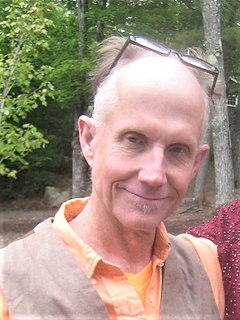A Quote by Paul Engle
All poetry is an ordered voice, one which tries to tell you about a vision in the un-visionary language of farm, city, and love.
Related Quotes
Ordered by subject, by importance, ordered according to whether the book was penned by God or by one of God's creatures, ordered alphabetically or by numbers or by the language in which the text is written, every library translates the chaos of discovery and creation into a structured system of hierarchies or a rampage of free associations.
I have just been to a city in the West, a city full of poets, a city they have made safe for poets. The whole city is so lovely that you do not have to write it up to make it poetry; it is ready-made for you. But, I don't know - the poetry written in that city might not seem like poetry if read outside of the city. It would be like the jokes made when you were drunk; you have to get drunk again to appreciate them.
Poetry cannot be translated; and, therefore, it is the poets that preserve the languages; for we would not be at the trouble to learn a language if we could have all that is written in it just as well in a translation. But as the beauties of poetry cannot be preserved in any language except that in which it was originally written, we learn the language.
So much of what I love about poetry lies in the vast possibilities of voice, the spectacular range of idiosyncratic flavors that can be embedded in a particular human voice reporting from the field. One beautiful axis of voice is the one that runs between vulnerability and detachment, between 'It hurts to be alive' and 'I can see a million miles from here.' A good poetic voice can do both at once.
There are many ways to love someone. Sometimes we want love so much, we're not too choosy about who we love. Other times, we make love such a pure and noble thing, no poor human can ever meet our vision. But for the most part, love is a recognition, an opportunity to say, "There is something about you I cherish." It doesn't entail marriage, or even physical love. There's love of parents, love of city or nation, love of life, and love of people. All different, all love.







































